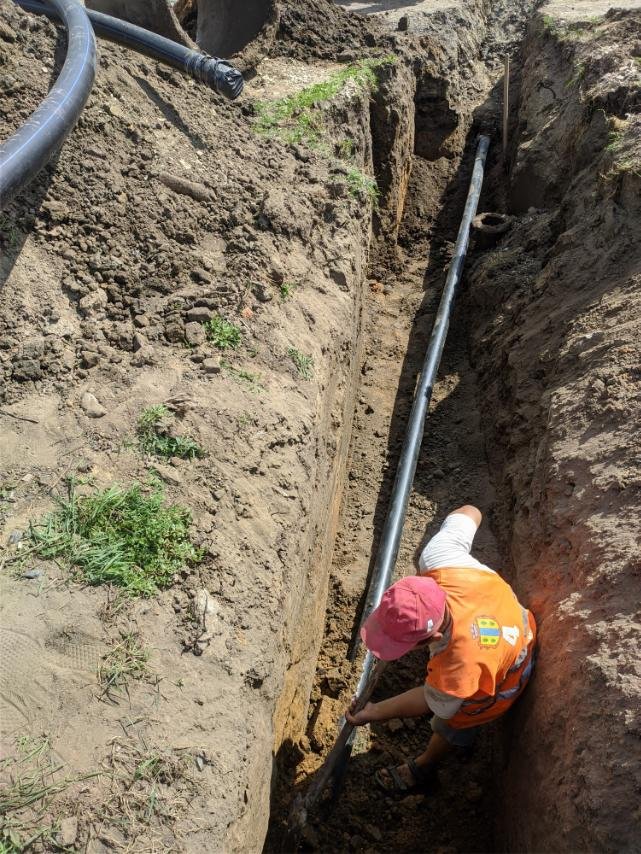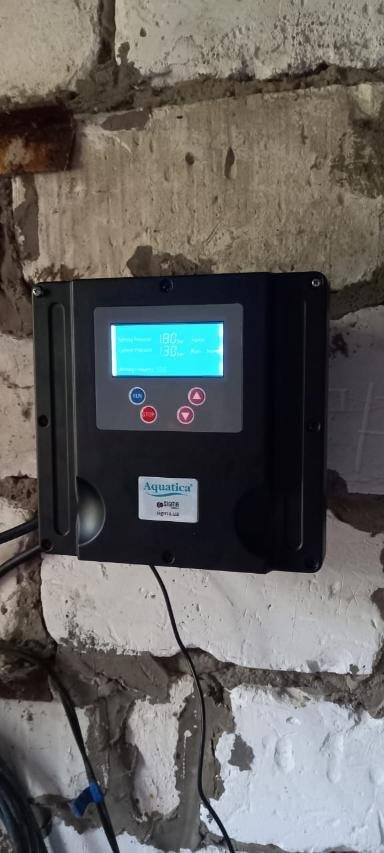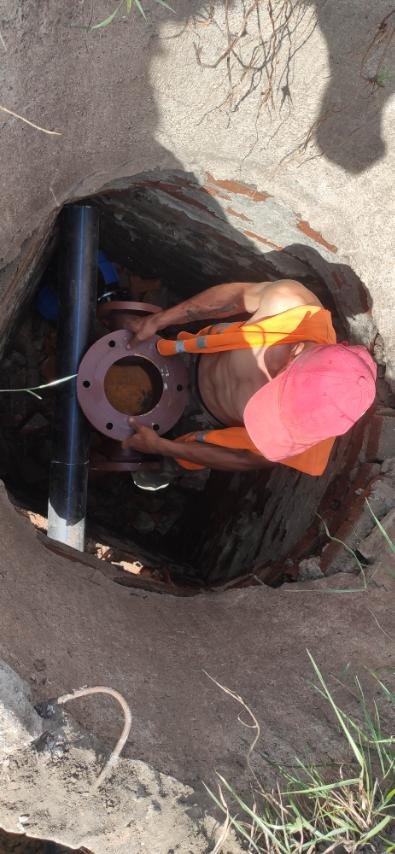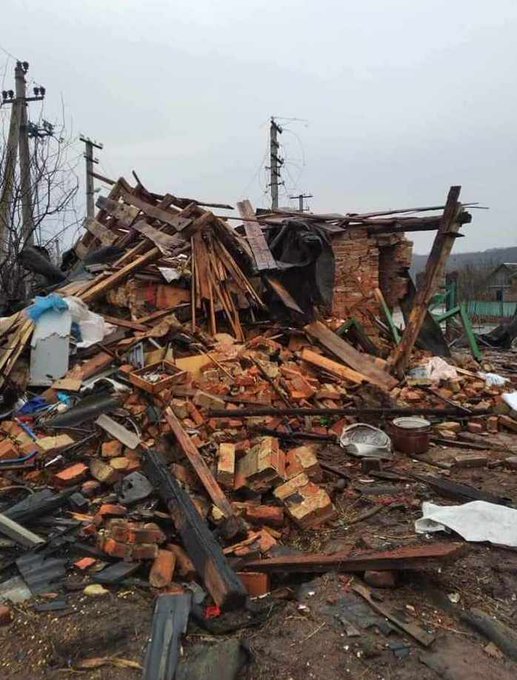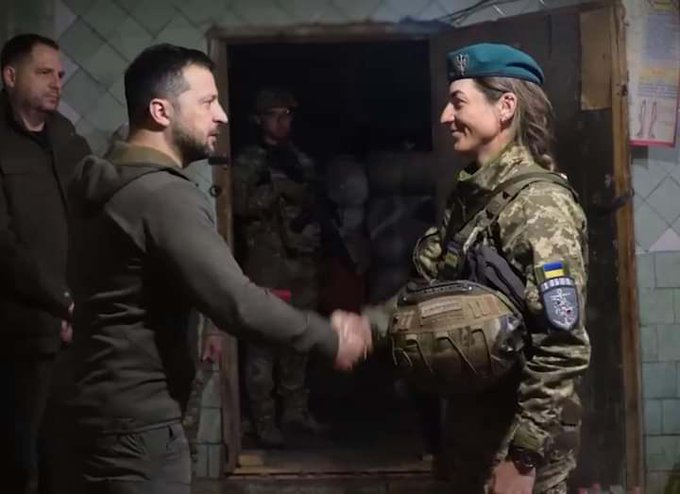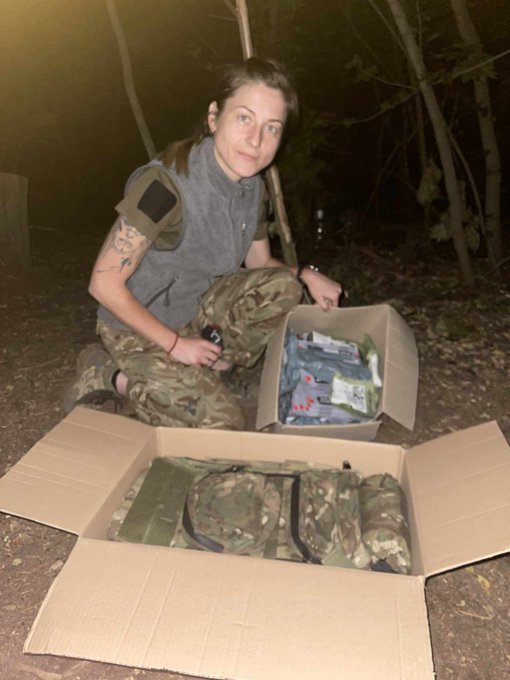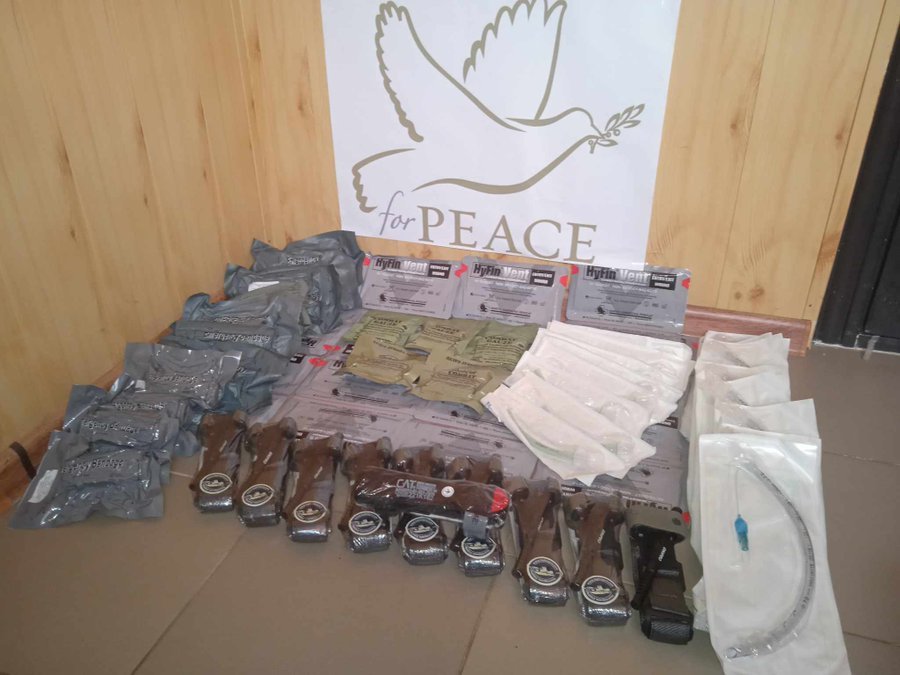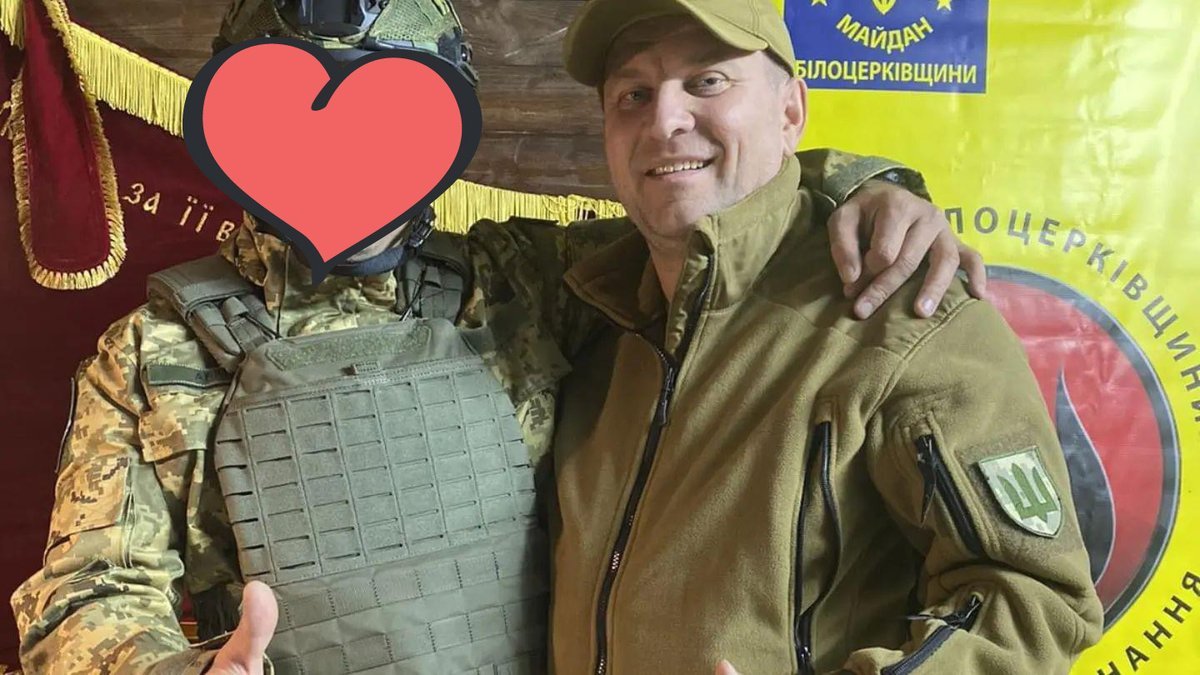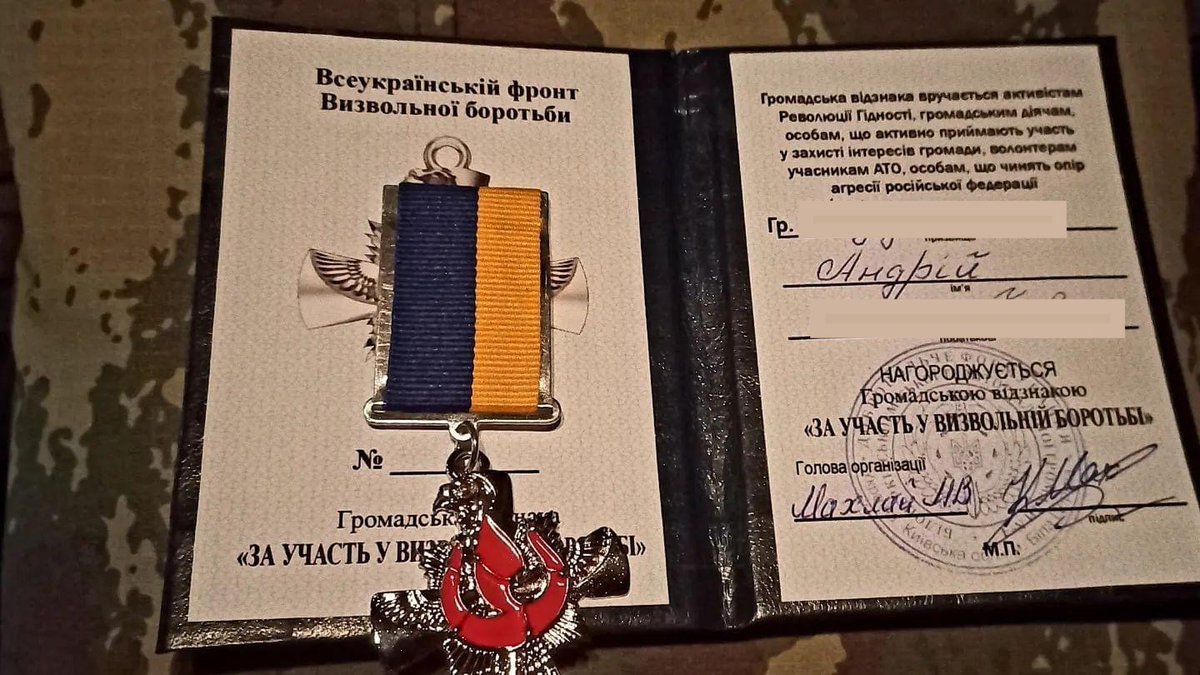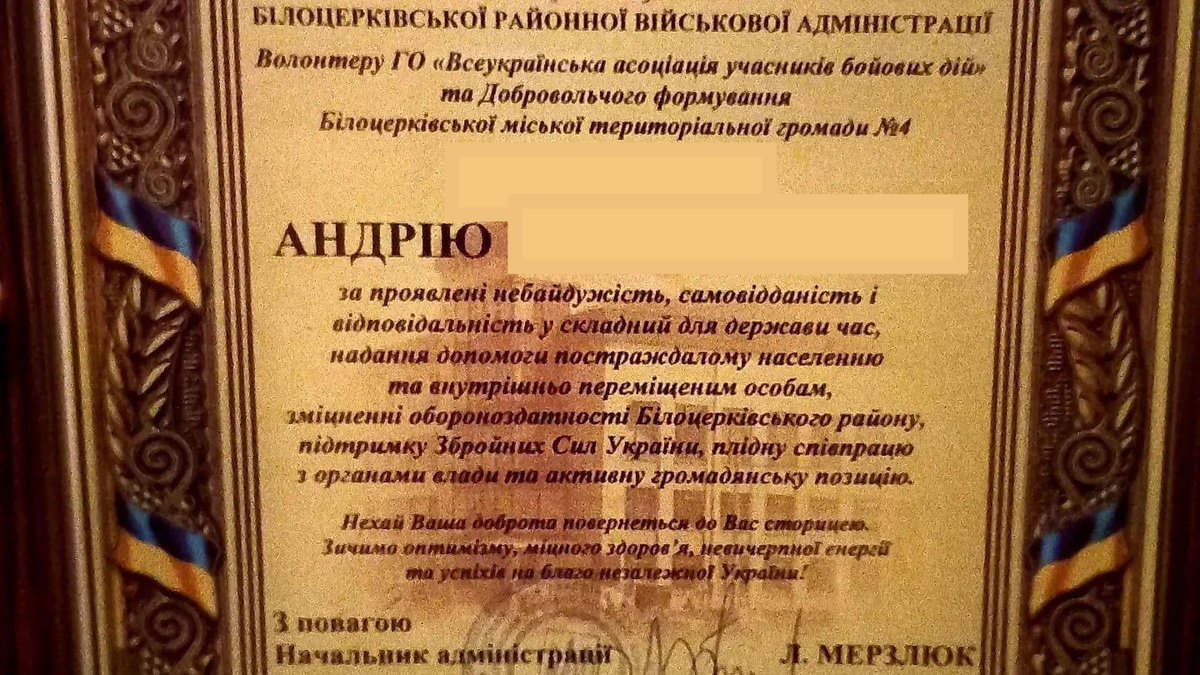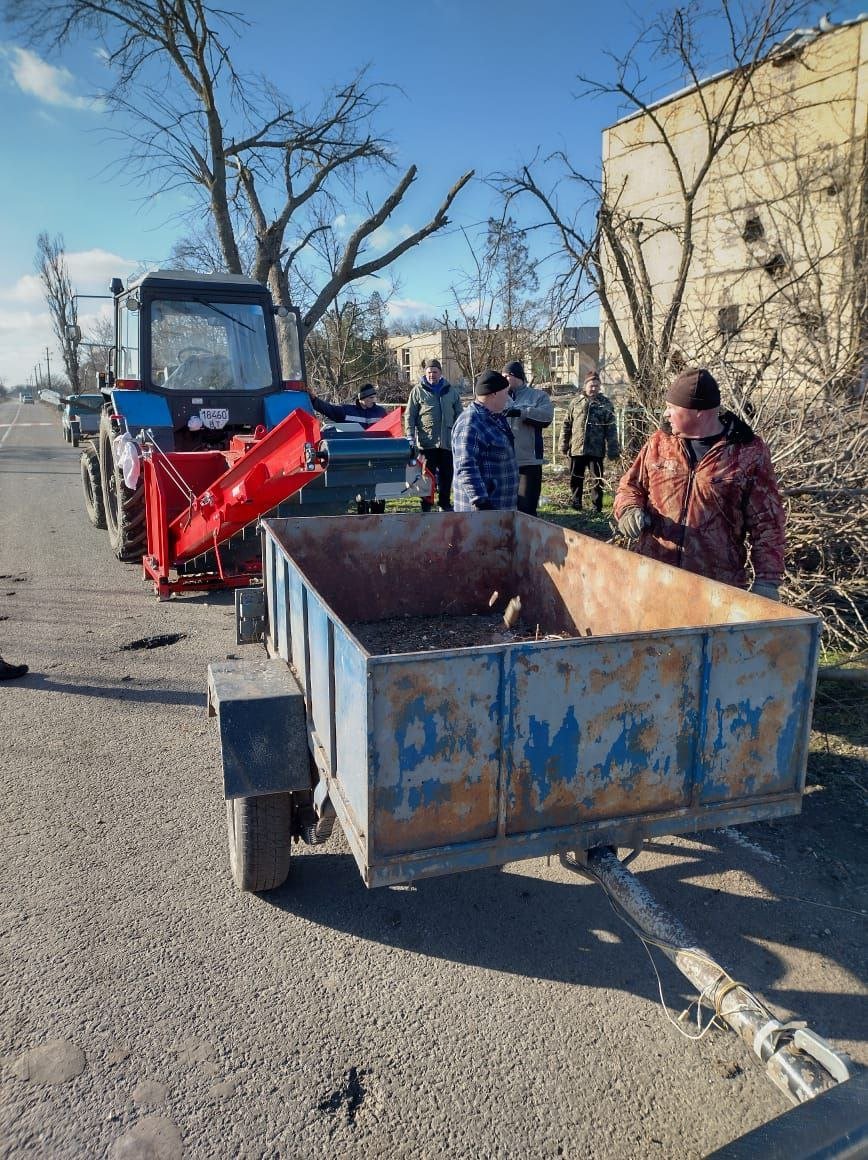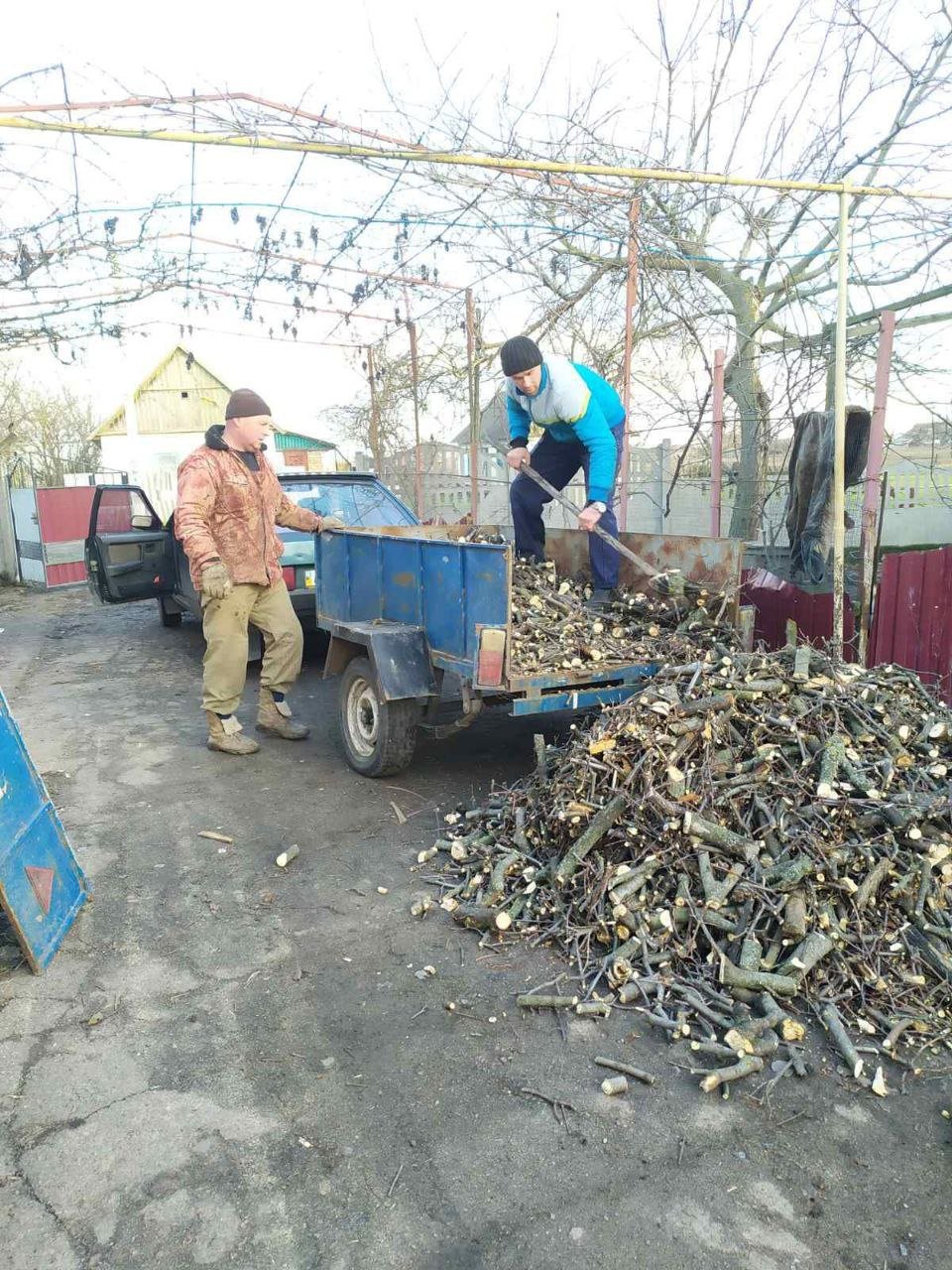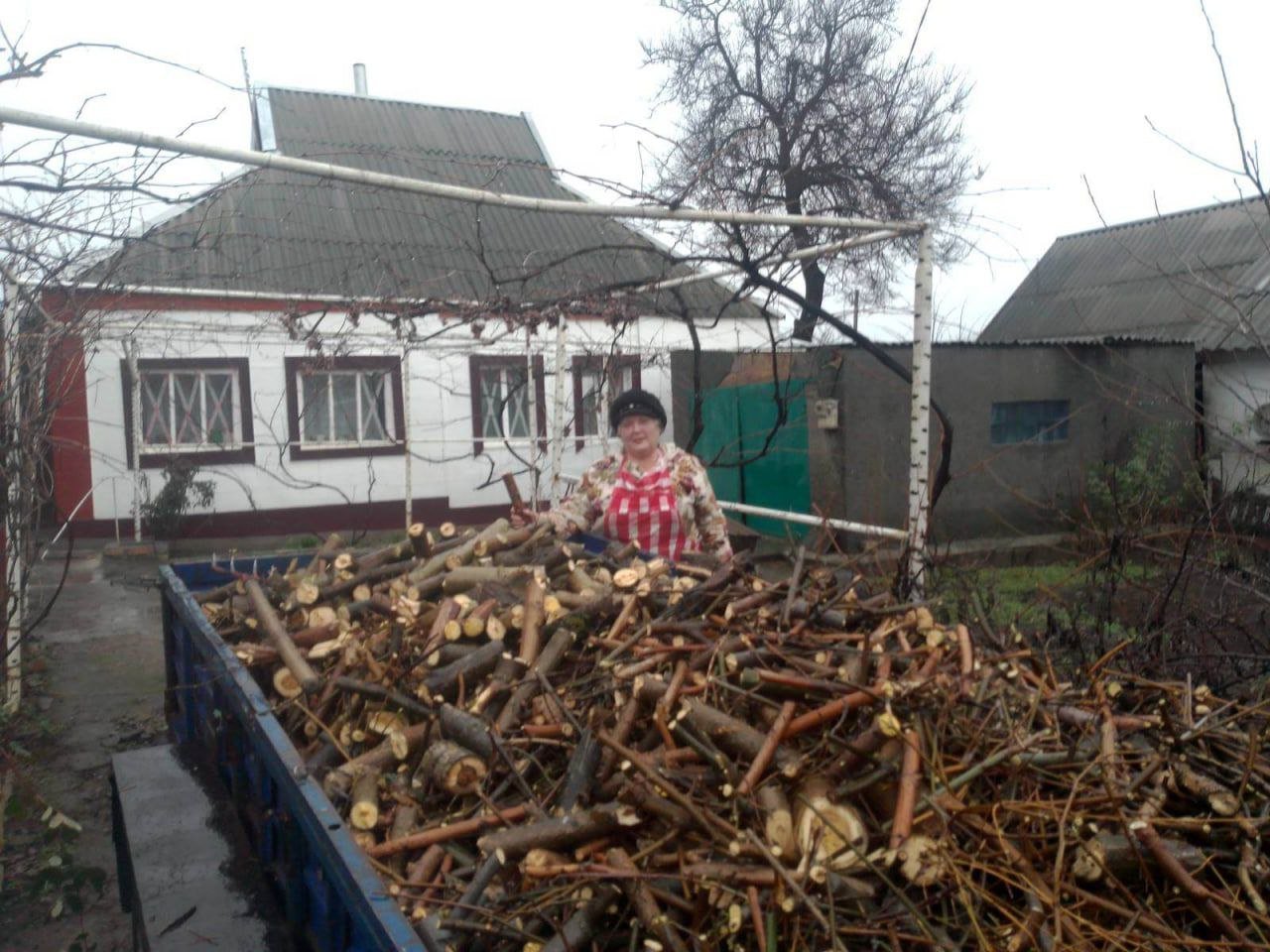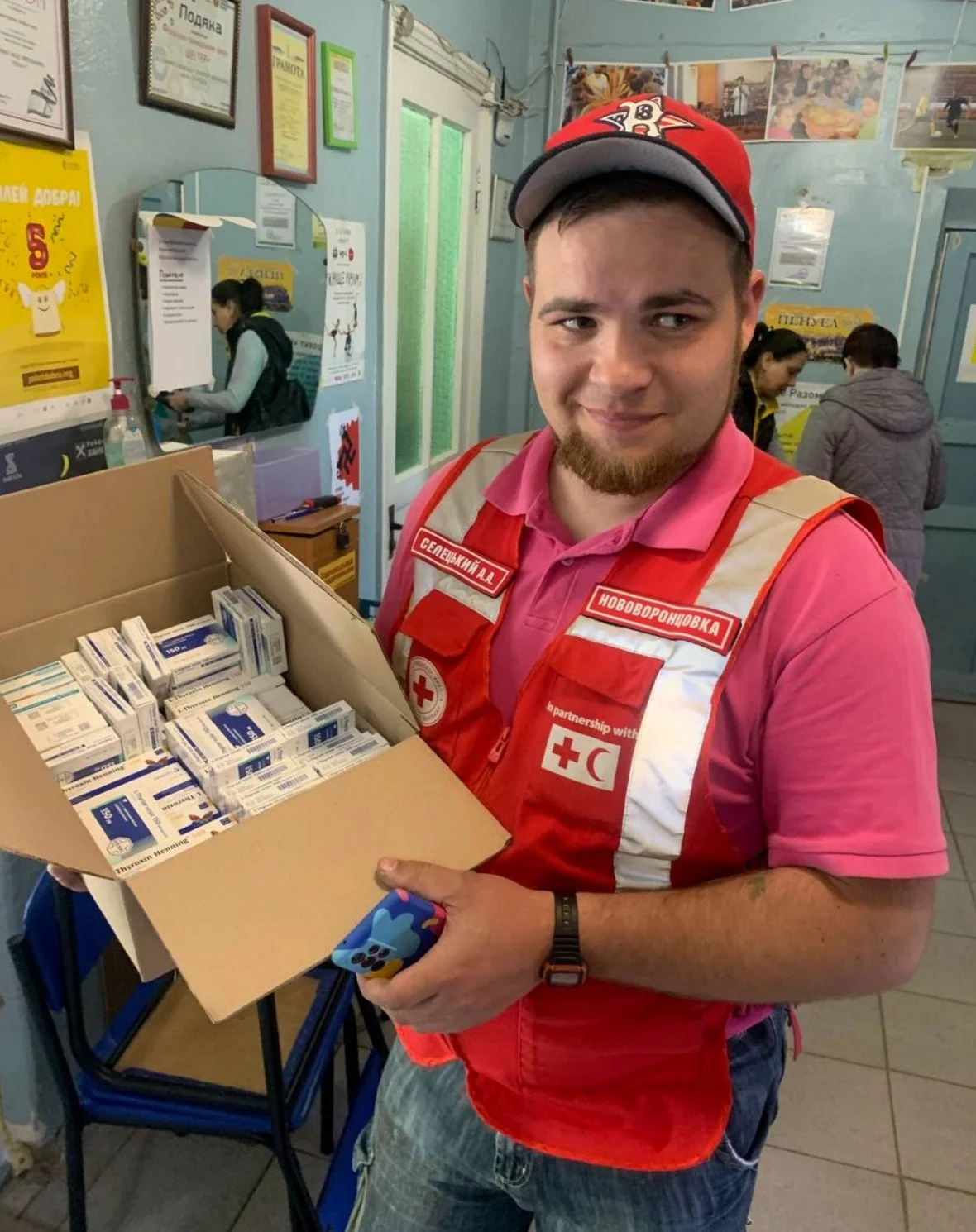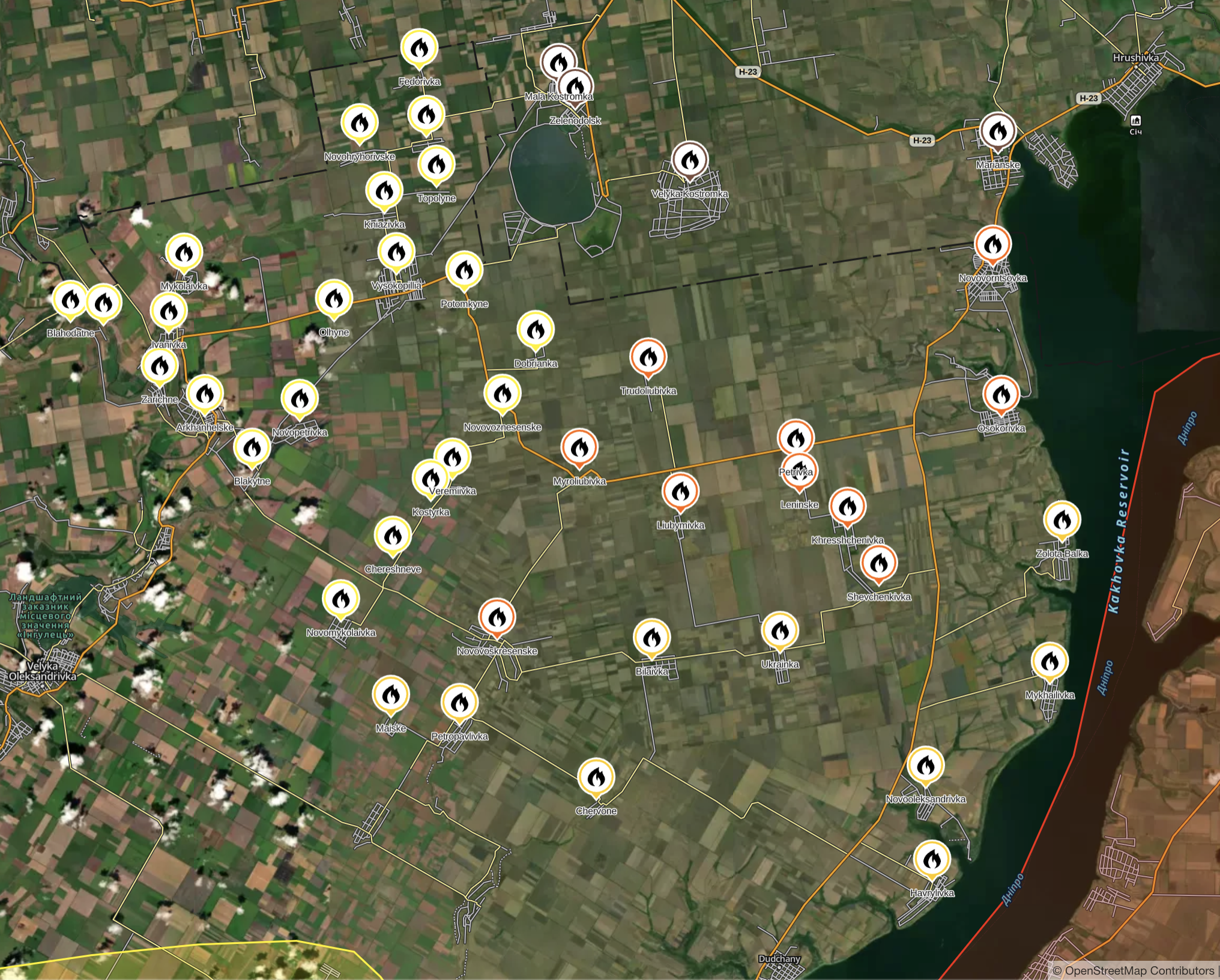Wood chippers for Liberated Villages in Stariy Saltiv, Kharkiv
Liberated counties like Stariy Saltiv struggle to get back on their feet because all of their public utilities equipment was either stolen by Russian occupiers are destroyed during active military battles or artillery incoming.
In the effort to revive such communities, locals struggle to provide basic public services like public paths cleared of scrap wood and branches. Additionally, public utilities are overwhelmed because they are managing communities with completely destroyed infrastructure, including their own office!
Local grassroots NGO Dobriy Diyi (trans. “Good Actions”) often represents the interest of their local public utilities both to public donors and within their community. Together with Dobriy Diyi, forPEACE purchased the needed wood chippers. Wood chippers don’t just help residents return to “normal” community life by providing means to clean the streets, the collected wood chips and scraps are distributed throughout the community as alternative means of heating material for residents during the winter season.
Dobriy Diyi shares the wood chipper with all the villages. And local volunteers help out the public utilities by clearing branches from the streets during their free time. Ground wood will come in handy for heating in the fall!
Dobriy Diyi thanks the sponsors of forPEACE for such useful equipment and the local volunteers for their conscientious work. As they report, “The funds are being put to good use preparing for the fall!”
250 meters of water pipes and 4 water pumps to Stariy Saltiv!
Dobri Diyi and Stariy Saltiv public works representatives standing outside the destroyed utilities building
We recently helped Dobri Diyi and their community of Stariy Saltiv replace 250 meters of damaged public water pipes and install four water pump systems.
These are key sections of the community’s water supply infrastructure that have been damaged by explosions. This will help essential services and certain sections of the community while local leaders work with state authorities to repair the hromada’s infrastructure (a hromada is equivalent to a US county).
On a recent visit to Stariy Saltiv, Krystyna and friends showed us the destruction that Russian occupation brought to their hromada. All public administration buildings were destroyed, and the hromada is now run out of a single, tightly packed building.
A brief tour of the destroyed utilities building
A lot of the piping needed to be replaced before the war, and we learned that the violent explosive vibrations from battle were enough to destroy much of what still worked underground.
Investigating the damage to the old pipe system.
In a social media post acknowledging forPEACE’s support, Krystyna thanked forPEACE for their “unwavering faith in Ukraine.” To this we will only add that our faith is unwavering in Ukraine because of the work we do with Ukrainians like the citizens of Stariy Saltiv, who are showing the world a better way to live, even in the face of terrible war. As Krystyna wrote in her thank you:
“Only by combining our efforts will we overcome all odds!”
Krystyna and her husband hosted us for tea at their home, destroyed during liberation.
Thank You, Sashko!
Recently, one of forPEACE’s on-the-ground partners, Sashko Sydorenko, shared a quick thank you post on his social media, which is filled with hundreds of similar messages of gratitude to us, other organizations, and various Ukrainians that comprise Sashko’s large community.
This particular post was thanking our donors for an EcoFlow RIVER Pro Solar Generator. It is designed for tough conditions and can produce 1.5kWh of electricity daily. It is being used now by frontline troops to charge their group and personal electronics and communications equipment.
Sashko (left) and a Ukrainian defender thank forPEACE for the “much needed” charging station.
Sashko with the defenders receiving the EcoFlow battery.
But it is to Sashko that we are grateful, and it is him we would like to thank. With forPEACE, Sashko has delivered 3 Ecoflow charging stations to defenders in Zaporizhzhia and Donetsk; delivered a newly purchased vehicle to the frontline; and retrieved, repaired, and returned a damaged vehicle to a combat unit.
On his own Sashko has done much more, he is an example of a regular civilian who has volunteered to ensure defenders have everything they need, whether it’s food, hygiene products, clothing, vehicles, or tactical gear.
Sashko is so important to frontline success, so trusted by those in charge of supplying the front, that simply being associated with him is its own form of status. forPEACE has been able to reach areas and people that we never would have otherwise without Sashko.
Sashko giving an interview at his car repair shop
Recently, we were visiting Sashko and talking about his volunteer work on the front. Sashko frequently retrieves damaged military vehicles from the battlefield and repairs them out of a private mechanic shop.
Sashko and Britta visiting an aid distribution center in Kyiv
This is dangerous work. He is often out in the open for long periods of time, especially if he has to tow the damaged vehicle or load it onto his trailer.
While he was relaying one particular story, Britta asked him if he needed armor. Sashko thought we were asking if he had anybody else requesting armor from him and said he didn’t have any requests at the moment. “No,” Britta said, “for you personally.”
We were able to give Sashko a good vest and helmet right then and there, but not without making him promise that he wouldn’t give it away to anybody under any circumstances. It was a genuine concern he’d give the armor away to someone else he knew also needed it.
Our work with Sashko continues: Sashko needs to purchase a new trailer for his vehicle recovery efforts ($4.5k); a frontline unit needs a new car ($3k); and another frontline unit along the Dnipro river needs 3 boat motors ($4k).
We are proud to work with Sashko. When you donate to forPEACE, these are the very people that you are supporting, the experts, the ones on the ground, in the trenches, fighting for their own survival.
One of the boats Sashko is repairing for defenders along the Dnipro.
A Portrait of a Starlink Delivery
A story about the human chain of people who get forPEACE aid directly to those pushing the frontline.
I wanted to share about the human chain of people involved in getting forPEACE aid directly to those pushing the frontline. When you donate, you directly support chains of ordinary Ukrainians—each link an inspiring person whose life choices are part of explaining how Ukrainian society has mobilized the way it has—to not just bravely withstand, but push back, a full scale invasion.
A marine of the 1st Separate Feodosia Battalion holds the delivered Starlink
I'm grateful we can provide "stuff" like Starlinks thanks to your donations. But I am more honored and awed by the social systems we are all part of that get that stuff from point A to B. As critical as any piece of equipment can be, it is these social networks that guarantee Ukrainian victory.
So here is an attempt to convey, person by person, the sacrifices Ukrainians make on a daily basis for victory. And how you too are a part of that story.
Because we provided a Starlink to them this week, we were given this badge from an assault unit attached to the 1st Separate Feodosia Battalion of Marines. They are down in the trenches, face-to-face with the enemy, pushing the frontline in the counteroffensive, and they still have some prominent counties on their Liberation to-do list.
The soldier in the middle, Denys, lost his leg in the winter fighting near occupied Vodyane, Donetsk. He returned just last week for a second round of liberating Ukraine. "They can't break me! Whatever they try, they can't!"
The man on the right is Oleh. He represents millions of Ukrainian civilians who overnight became nearly full-time volunteers supporting frontline units they know. We work with him to support four battalions. Oleh personally delivered this Starlink to their position.
Oleh’s own story is not a simple one. Oleh is from Trostyanets, Sumy. One of the towns that was captured and occupied in the first days of the full scale invasion. He and his family are survivors of occupation. He shows me what was once his family's home. Rubble. "We have our lives. And thank God for that. But that's all we have now."
Oleh’s home
Looking at Oleh’s home, I think he would be more than justified to focus on his own stresses providing for an extended family that has lost everything. But instead he makes weekly trips to various active combat units to understand needs and deliver aid.
I met Oleh through another soldier from a different battalion named Maksym. An orphan from Chernivtsi, Maksym has been fighting in this war since 2014 and out of Bakhmut since last Fall. He's had three operations in the past year alone from shrapnel slicing through his body.
After each operation Maksym has returned to battle. While still recuperating in the hospital he has helped Oleh fundraise for various other units. Just a few weeks ago Maksym was released from hospital recovery and got married to his long-time partner.
Maksym on the left
Oleh met Maksym when he was in a hospital in Donetsk that Oleh volunteers at. The nurses knew Oleh was a frontline volunteer and told Oleh that Maksym needed his things brought from his troop’s positions. When he was evacuated all his things, including his legal documents, had been left behind. Oleh retrieved Maksym’s things and soon he started helping Oleh with his volunteer work.
In June 2023, after we helped Maksym's troop with multiple vehicle repairs, tire replacements, optics, helmets, body armor, sound cancellation headphones, drones, and medicines, he introduced forPEACE to Oleh and asked if we could help fulfill a medic's IFAK request.
This medic to be precise! Liola:
I met Maksym in November 2022 through Andriy, a friend I've known since 2012 when I first moved here. He's one of those people whose family is a little piece of heaven on earth. And they offer their home and love to all.
Andriy (center) helping in a destroyed community
Andriy met Maksym years ago and has always remained a friend and has helped with Maksym's military needs since 2014. Men are allowed to leave the country if they have a large family. When the full scale invasion began, Andriy could have easily and legally left since he and his wife have six children! But he didn't. Andriy relocated his family to Europe and then promptly returned to Ukraine to help with the war effort in every way he could. Ramping up his own social network and transforming it into a relief organization.
So that's the story of how a Starlink got delivered to a troop this week. The next time you see any picture of a troop receiving something, the miracle isn't just in the thing that was received, the miracle is every single hand who was part of getting it there. Each hand is worn with its own story long preceding this invasion. Each person came to be who and where they are in order to play their part in Ukraine's victory.
Thank you for putting out your hand and joining this chain. These are the people your donations empower to protect Ukraine. They are able and willing to sacrifice everything to do it. When you donate to our people-to-people fund this is what it looks like. forpeace.us
I love sharing these stories. Because these are the simple little raw things that are behind headlines of Ukrainian bravery.
— Britta Ellwanger
Novovorontsovka Reconstruction Project
“Ukraine begins with each and every one of us.”
(Note: this report contains hyperlinks to articles on Ukrainian/Russian language sites. If you are interested, you can open the link in Google Chrome or Safari and have these pages auto-translated with decent though imperfect results.)
forPEACE strives to go beyond providing “stuff” that sustains life; we give tools to those in need so that they can create their own solutions and become self-sufficient. The war in Ukraine has been catastrophic to the people and their environment. Ukrainians have a long, uncertain path ahead of them. But they can’t wait to begin life again. We’d like to share with you one story about a typical Ukrainian community working to rebuild after liberation in the southern Ukrainian region of Kherson.
In October of 2022, Director Britta and Dr. Aragon Ellwanger were meeting with Juliy Morozov, the head of Shelter+ and one of forPEACE’s most valued partners. They asked Juliy if he knew of any local rebuilding efforts that could use help. He told Britta, "Just today I was talking to Andriy. He wants to find a local way to provide fire materials." The next day Britta drove the two hours from forPEACE headquarters in Kryvyi Rih down to Novovorontsovka to talk with Andriy about his idea.
A red-vested Andriy prepares to take a shipment of forPEACE medicines to occupied communities.
Britta first met Andriy some months earlier when he was running humanitarian aid into occupied areas in the south of Ukraine—into the areas he is now rebuilding. Andriy’s method was straightforward: donning his trademark vibrant Red Cross vest, he would simply approach the Russian guards and present his belongings to be searched. Being straightforward like this allowed him to make dozens of these runs, carrying things like vital medicines to his community under occupation. This however, didn’t guarantee his safety. He still had to travel back and forth through a very dangerous no man’s land. On his last trip, while evacuating a mother and child, he was removed from his vehicle and nearly executed simply because the Russian guards were in bad moods.
Novovorontsovka is both a town and the name of a larger administrative unit called a “hromada,” something equivalent to a US county. Since Britta had last seen him, Andriy had been appointed by President Zelensky as the head of the Novovorontsovka Military Administration, a wartime civilian body that coordinates between the military and local administrations in areas under martial law. Even after liberation, especially with the enemy just across the river, these remain dangerous areas.
Andriy points to the occupied side across the Dnipro river.
Andriy thinks outside of the box, and before the Russian military had even finished fleeing beyond the Dnipro river, he and his fellow Novovorontsovkans were already working to become a resilient, self-sufficient community. Many of the their neighboring communities under Andriy’s jurisdiction had lived directly under an oppressive Russian occupation.
A building damaged by Russian tank fire.
A few northerly towns (such as Novovorontsovka proper) had escaped occupation but that meant that their towns suffered frequent attacks and constant bombardment. Osokirivka, what used to be a town of nearly 3000 people, was completely raised to the ground, not a single building was left untouched.
As Andriy gave Britta a tour through the riverside town, she learned about the community’s many residents who desperately needed help acquiring enough firewood to survive a winter without gas or electric heat. The plan was to replace some of the equipment the Russian soldiers stole that was needed to produce the firewood, and then share it to clean up their destroyed public spaces.
Many windows in the Novovorontsovka region have been shattered by shockwaves and shrapnel.
Reconstruction is a long process. It begins with making a place safe. Areas need to be cleared of lingering enemy soldiers, dangerous debris, abandoned materiel, explosive traps, and mines. When it comes to mines, this process takes decades. All the damages, financial losses, and material destruction must be recorded and prioritized. Then, cleanup of destroyed areas, reconstruction of infrastructure, and reinstitution of social programs can begin.
Serhiy, Andriy’s deputy in charge of all infrastructural reconstruction projects, is just the man for the job. Gas and electric infrastructure were destroyed or dysfunctional, and with winter fast approaching, Serhiy and Andriy knew that there would be several hundred among them that would not survive without help to stay warm. Even if one is capable of venturing out and gathering firewood, mines still present one of the greatest threats to people in these rural areas.
If organized solutions for the community were not found, Serhiy and Andriy knew individuals would search in increasingly dangerous areas, competing for access to burnable material. In communities less organized than Novovorontsovka, death in this way is a regular occurrence. Andriy and his team had come up with a simple plan that would address two important issues while also encouraging locals to coordinate their efforts, rather than compete for a scarce resource out in the dangerous countryside.
Top: There are often dangerous explosives among the various “souvenirs” the invaders leave behind.
Bottom: an example of forPEACE de-mining support.
To do this though they would need help to replace some of the expensive industrial-agricultural equipment stolen by the Russian military. After Britta met with Andriy in October, he and Serhiy secured contracts with the neighboring hromada administrations of Novo-Oleksandrivka, Vysokopillya, and Zelenodolska, who were interested in cooperating on this dual cleanup/firewood project. forPEACE always strives to conduct projects that have a force-multiplied impact in their community, and Serhiy’s hard work formalizing cooperative arrangements with other communities added yet another dimension to this project’s many benefits.
Britta was fortunate to meet up with Serhiy and his wife, Nastya, in Kyiv a few weeks later when they were transporting a newly acquired 14-passenger van down to Novovorontsovka for the local public transportation system.
Russian strikes had cut power to the city, so over a candlelit restaurant dinner, Serhiy and Nastya told Britta of their experience escaping occupation, and how experiencing the violence and destruction firsthand has informed their reconstruction approach. Project details were finalized and the community-wide clean up and firewood project was officially launched!
In December, we brought in the help of another humanitarian organization, Utah-based Lifting Hands International, our close partner on several projects in Ukraine. Britta was able to personally introduce Hayley Smith and her team at LHI to Andriy, Serhiy, and the Novovorontsovka community. In a town reduced to a population of several hundred, this small delegation warranted an announcement in the hromada newsletter, which is hosted on the social media app Telegram. “today, our friends and partners from the United States came to our Novorontsovka. Just imagine—all the way from the USA itself!” It is difficult to overstate how much it means to these people that somebody far away with no prior connection is helping them to become safe and healthy communities again.
“… all the way from the USA itself!”
The 4 communities were able to purchase 2 industrial sized log splitters and 2 wood chippers, 1 tractor, and 1 trailer. When the manufacturer, ARPAL, discovered what the project was for, they paid for the delivery of their own equipment to the hromadas!
The four hromadas quickly got to work and the results almost immediately got the attention of the Ukrainian news. In the interview Andriy talks about one of the many reasons he likes the project: it all stays local. The log splitters and one of the wood chippers were purchased from a Ukrainian company. And the tractor, trailer, and other wood chipper were bought from a local Ukrainian businessman, Volodmyr, whose fish and wood businesses were completely destroyed as a result of Russian shelling.
Before the war, 45 settlements dotted the peaceful Ukrainian fields and lined the banks of the mighty Dnipro River. Just under 60,000 people called this area home. When our project began, the hromada leaders were setting out to care for the needs of their severely depopulated, terrorized, and destroyed communities, at that time they estimated about 4000 individuals total. We last spoke with Serhiy in late March and he said on average about 100 people per month have been able to return since our project began.
All the settlements that can benefit from the post-liberation clean up and firewood project
This project empowered 4 communities to be self-sufficient in cleaning up their public spaces, making them safe and beautiful again while also providing crucial winter warmth for the most vulnerable among them—the elderly and disabled, those that live in isolated areas, and those who have lost homes, family, and livelihoods.
The opportunity for community members to come together and participate in rebuilding is just as important as the process of rebuilding itself. They are opportunities to care for each other and their environment, to heal, and to reclaim control. To effectively use the equipment they communally purchased, many villages organized a toloka, a community "clean-up." A toloka however is much more than a simple clean-up.
“Today, January 26, 2023, in the village of Lyubimivka, the residents of the village held a toloka. More than 50 residents gathered and everyone started working together. I am infinitely grateful to my fellow villagers for their work and perseverance. We have the most beautiful village [...]”
When Ukrainians speak of their deep democratic roots, ground-up self-organizing cultural activities like the toloka are in part what they are talking about. The toloka began in Ukrainian culture as a way to accomplish urgent work, or work that required many hands, such as harvesting, firewood gathering, garbage collection, and building and repairing things like roads, churches, and schools. Historically, tolokas have also been organized to help widows, orphans, soldiers, the elderly and disabled, the houseless, and the horseless. It has been a wonderful opportunity for the forPEACE team to be involved in such a long tradition of mutual aid and community building.
“Toloka at the Novovorontsovka Stadium. Ukraine begins with each and every one of us.”
One of the greatest benefits of this project from forPEACE’s point of view, is the tractor. This is a gift that will keep on giving and is what forPEACE founder Margret calls a “golden project.” On the rural steppe, the power to move things through mechanization is transformative, and Margret understood that the cleanup and firewood project would ultimately be 1/100th of what the community would share the tractor for. It will go on to be used in sewing fields in the spring for example.
Infrastructural investments like this provide communities the means to be self-sufficient and self-functioning. These kinds of projects are a wonderful model of aid because they stop the aid cycle. Many forms of distributive aid perpetuate unsustainable dependencies and cause communal strife. The tractor and other equipment have already provided and will continue to provide ongoing community benefit well beyond the original firewood and cleanup project.
Serhiy, Svytlana, Andriy, and Yulia
On March 10, 2023 forPEACE team members Svytlana and Yulia drove down to Novovorontsovka to check out the community’s progress. Dozens of settlements in the four hromadas had come together to clean up their public spaces and homes. More importantly, they provided enough fuel for well over 200 families to stay warm through the winter.
forPEACE strives to create projects that emphasize community autonomy and self-sufficiency. We are so honored to be a part of Novovorontsovkans reconstruction efforts and we look forward to what the future holds for further cooperation. Since the success of the Novovorontsovka project, we continue to conduct locally-led projects with many other amazing indiduals and organizations. forPEACE has begun working with a community much like Novovorontsovkans and their wonderful neighbors. Stariy Saltiv, near Kharkiv in the East, is a wonderful community working hard to replace stolen essential administrative technologies, rebuild their school, and clean public spaces. forPEACE is raising $40,000 to support our current reconstruction efforts with the Stariy Saltiv community.




